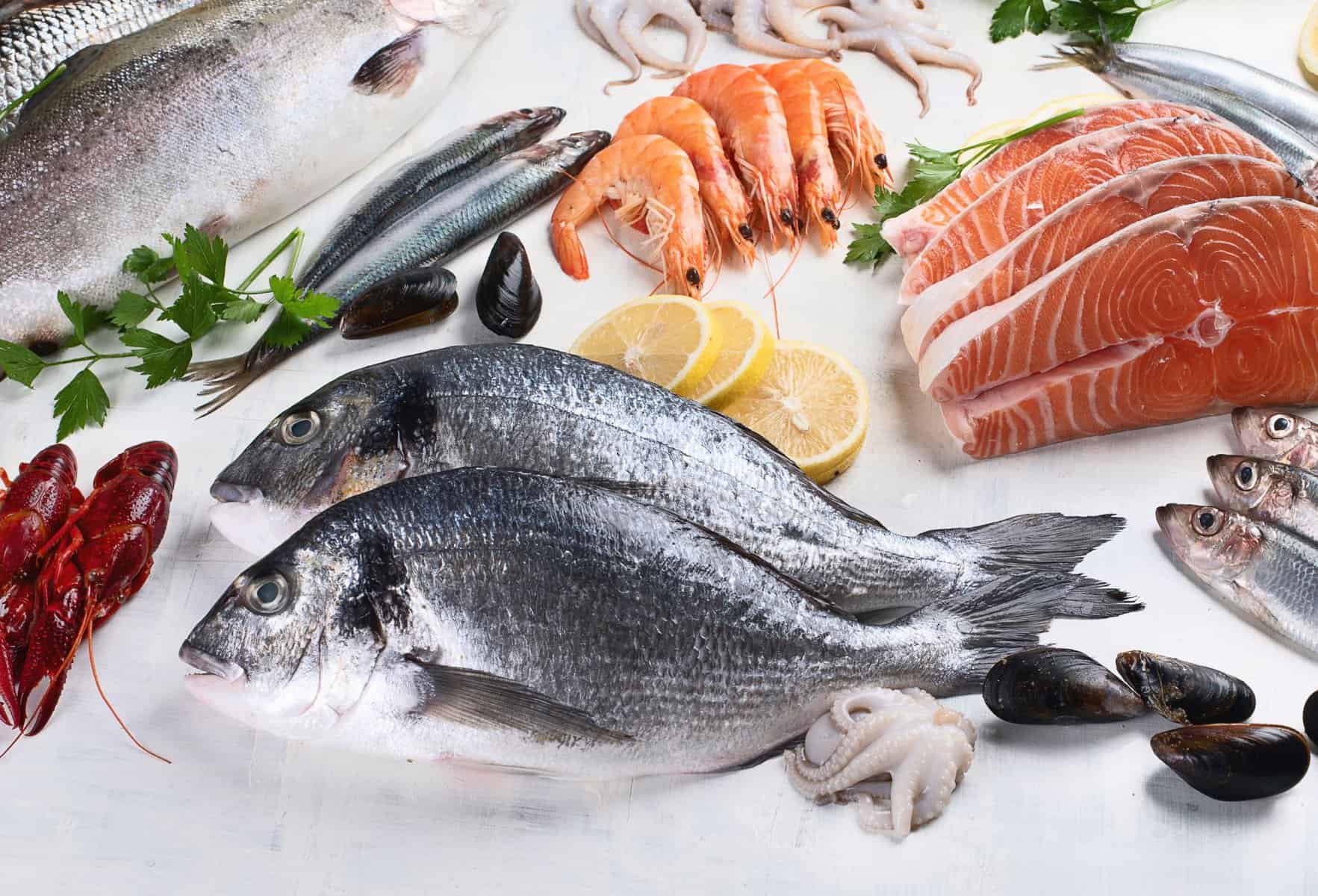
Fish is an excellent source of protein, omega 3 fatty acids, iodine and vitamin B12. It is also low in saturated fat. These nutrients (along with others) are crucial for healthy brain development in your baby whilst pregnant and breastfeeding.
Mercury is a naturally occurring element in the environment that can build up over time in the form of methylmercury. Methylmercury can build up in the aquatic food chain through feeding- mercury accumulates when a bigger fish eats a smaller fish which then gets eaten by a bigger fish, and so on. This means when you eat a big fish, you could be exposed to a higher mercury content as mercury binds to proteins in tissue (muscles) of the fish. The concern is that mercury can pass the placenta and impact the developing nervous system of bub and may cause developmental delays in the future. Cooking and preparation do not significantly change the amount of mercury in fish.
However, before you swear off fish, it’s important to be aware that the amount of mercury a fish contains also depends on its age, where it lives and what it has eaten. Additionally, in Australian waters, most fish tend to have low mercury levels. The current advice is that whilst all fish contain mercury, with more in predatory fish (think swordfish, shark), people tend to only consume moderate amounts, so the benefits of consuming fish far outweigh the risks associated with mercury intake.
Remember, fish contains a lot of nutrients that are beneficial to healthy brain development!
What are the current guidelines?
| POPULATION: | WOMEN WHO ARE PREGNANT/PLANNING PREGNANCY AND CHILDREN (UP TO 6 YEARS) |
|---|---|
| Serve Size: | 150g (adults), 75g (children) |
| Frequency: | Once per week |
| Fish: | Orange Roughy (Deep Sea Perch) or Catfish and no other fish that week |
| OR | |
| Frequency: | Once per fortnight |
| Fish: | Shark (Flake) or Billfish (Swordfish/Broadbill and Marlin) and no other fish that fortnight |
| POPULATION: | REST OF THE POPULATION |
|---|---|
| Serve Size: | 150g (adults) |
| Frequency: | Once per week |
| Fish: | Shark (Flake) or Billfish (Swordfish/Broadbill and Marlin) and no other fish that week |
So, what types of fish could I consider?
Low mercury fish options that are also high in omega 3 (double win!):
- Mackerel
- Atlantic salmon
- Canned salmon/tuna
- Herrings
- Sardines
Other low mercury sources:
- Prawns
- Squid
- Octopus
- Whiting
- Snapper
What if I don’t eat fish?
You could talk to your health team about a fish oil supplement as well including plant-based omega 3 fatty acids in your diet.
What about canned tuna?
The tuna used in cans are usually from smaller species and caught when less than 1 year old, so the mercury content is lower.
The bottom line:
Fish contains vital nutrients for healthy brain development. Aim for 2-3 serves of low mercury fish per week and limit high mercury fish to once a week or fortnight as per the guidelines.
- Add tinned tuna to a colourful salad with wholegrains for lunch
- Choose fish when dining out (ideally grilled)
- Allocate certain nights of the week as fish nights
- Try fish in different ways- fish tacos, fish pie, paella, steamed fish with asian vegetables, fish parcels or fish patties
Some of our recipes you could try:
Sesame Crusted Salmon with Avocado Salad
Salmon with Asian Greens and Rice
Salmon, Crispy Potatoes and Garlic Almond Vegetables
Want support navigating your nutrition during pregnancy? We are here to help!



